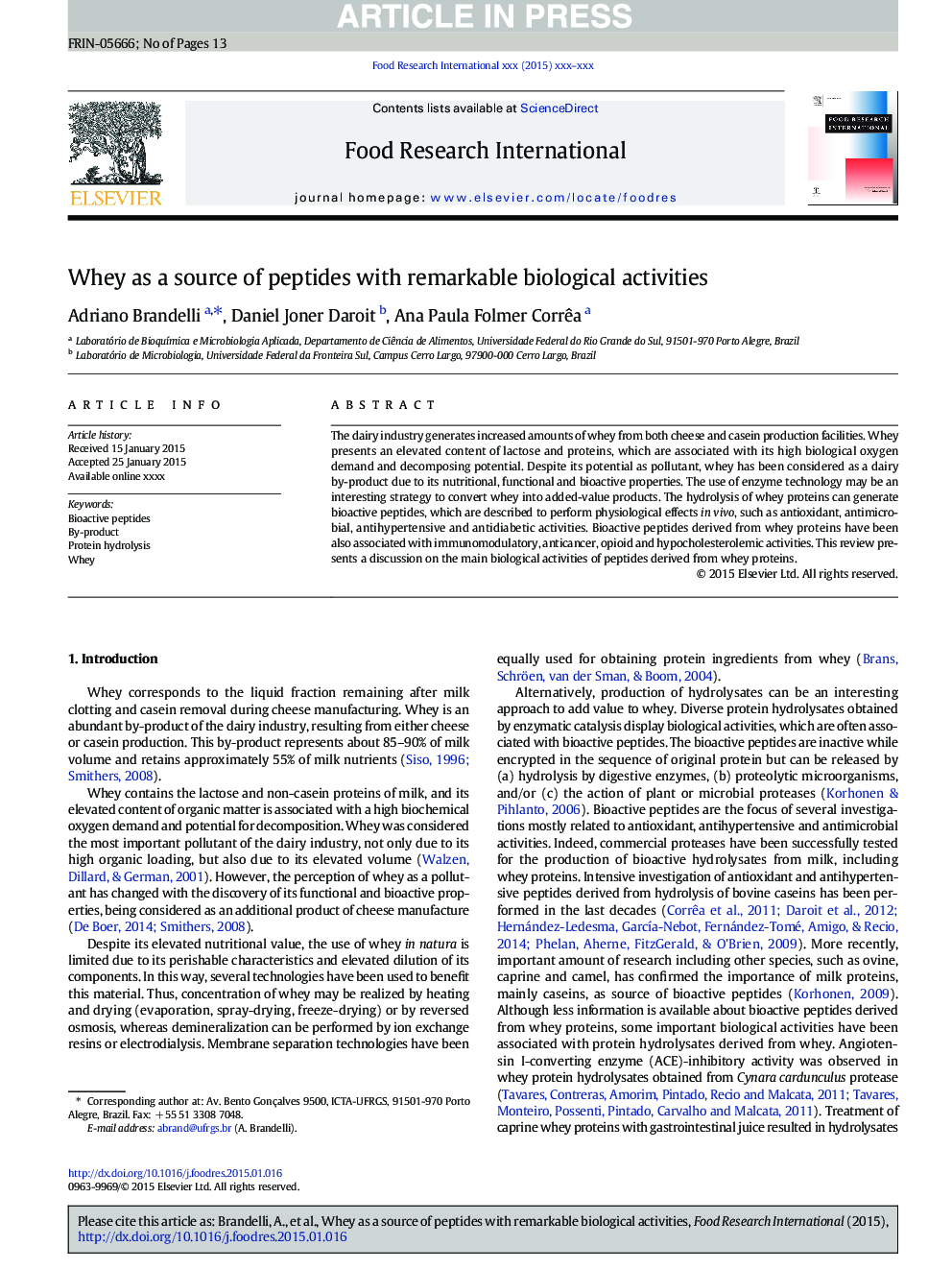| Article ID | Journal | Published Year | Pages | File Type |
|---|---|---|---|---|
| 6395460 | Food Research International | 2015 | 13 Pages |
Abstract
The dairy industry generates increased amounts of whey from both cheese and casein production facilities. Whey presents an elevated content of lactose and proteins, which are associated with its high biological oxygen demand and decomposing potential. Despite its potential as pollutant, whey has been considered as a dairy by-product due to its nutritional, functional and bioactive properties. The use of enzyme technology may be an interesting strategy to convert whey into added-value products. The hydrolysis of whey proteins can generate bioactive peptides, which are described to perform physiological effects in vivo, such as antioxidant, antimicrobial, antihypertensive and antidiabetic activities. Bioactive peptides derived from whey proteins have been also associated with immunomodulatory, anticancer, opioid and hypocholesterolemic activities. This review presents a discussion on the main biological activities of peptides derived from whey proteins.
Related Topics
Life Sciences
Agricultural and Biological Sciences
Food Science
Authors
Adriano Brandelli, Daniel Joner Daroit, Ana Paula Folmer Corrêa,
